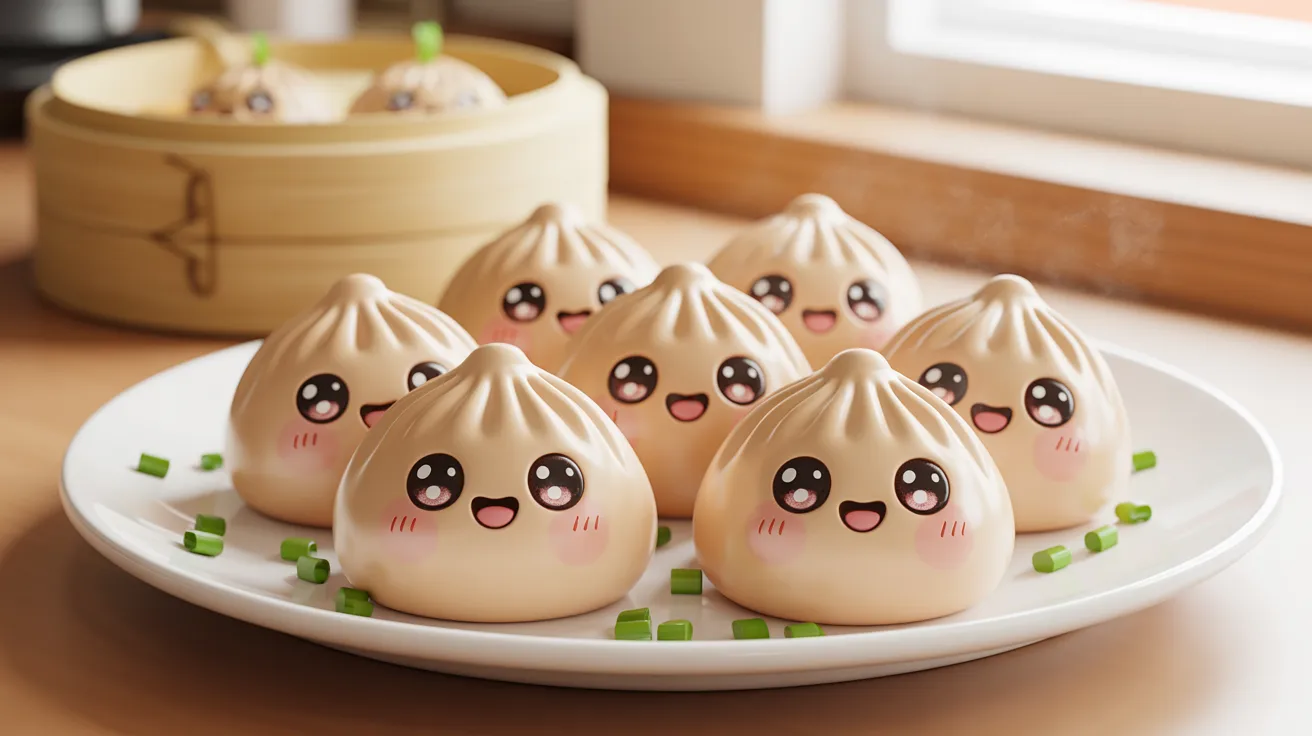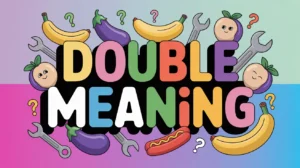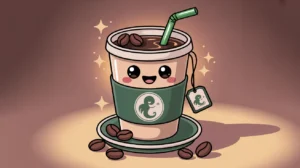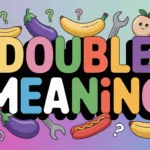There’s something universally comforting about dumplings—those little pockets of joy that transcend cultures, cuisines, and continents. Whether you’re savoring Chinese jiaozi, Polish pierogi, Japanese gyoza, or Italian ravioli, dumplings have been bringing people together for thousands of years. Historians believe dumplings originated in China over 1,800 years ago, invented by a physician named Zhang Zhongjing who created them to treat frostbitten ears during a harsh winter.
Today, dumplings have evolved into countless varieties, each culture adding its own delicious twist to these doughy delights. But beyond their culinary significance, dumplings have also inspired a treasure trove of puns and jokes that are just as satisfying as the food itself. From steam basket humor to pot sticker wordplay, the world of dumpling comedy is ready to be served.
So grab your chopsticks, prepare your appetite for laughter, and let’s dive into a feast of dumpling puns that’ll have you rolling with joy—just like your favorite wonton wrapper!
🥟 Classic Dumpling Puns That Are Simply Steaming
Why Dumpling Humor Never Gets Old
Every cuisine has its comedy goldmine, and dumplings are no exception. These bite-sized bundles of deliciousness have been inspiring laughter in kitchens, restaurants, and dining rooms worldwide for generations. Moreover, the beauty of dumpling humor lies in its versatility—from the folding technique to the cooking methods, every aspect offers comedic potential.
Whether you’re a dim sum enthusiast or a pierogi purist, these timeless jokes capture the essence of what makes dumplings so universally beloved. Furthermore, they’re the perfect conversation starters at your next dumpling feast, guaranteed to make everyone at the table crack a smile between bites.
The Greatest Hits from the Steamer Basket
- “I’m not saying I’m obsessed with dumplings, but I’ve reached my dumpling point!” When moderation becomes a foreign concept.
- “Why did the dumpling go to therapy? It had too many emotional fillings!” Processing those deep-seated ingredients.
- “What do you call a dumpling that tells jokes? A pun-ton!” Comedy served in convenient bite-sized portions.
- “I tried to make dumplings from scratch, but I just couldn’t get a wrapper around it.” Some culinary concepts are hard to grasp.
- “Why don’t dumplings ever win arguments? They always fold under pressure!” A structural weakness exposed.
- “The dumpling opened a successful business—it really knew how to seal the deal!” Entrepreneurial excellence through proper pleating.
- “What’s a dumpling’s favorite type of music? Anything with a good wrapper!” Hip-hop meets dim sum.
- “I used to be indecisive about dumplings, but now I’m not so sure… actually, yes I am. Give me all of them!” Clarity achieved through craving.
- “Why did the dumpling break up with the soup? Things got too soupy!” Sometimes relationships are too intense.
- “What do you call a philosophical dumpling? Deep-fried in thought!” Existential cuisine at its finest.
- “Our dumpling chef is so talented, every creation is a work of tart!” Artistic expression through dough.
- “Why don’t dumplings ever get lonely? They always come in groups!” Safety and deliciousness in numbers.
🍜 Wonton and Gyoza Jokes That Pack a Punch
The Art of Asian Dumpling Humor
Asian dumplings represent perhaps the most diverse and celebrated dumpling family in the culinary world. From delicate wontons floating in soup to crispy-bottomed gyoza fresh from the pan, these varieties have captured hearts and stomachs globally. Interestingly, the word “wonton” comes from Cantonese and roughly translates to “swallowing clouds,” which perfectly describes their ethereal texture when cooked properly.
Meanwhile, gyoza made their way to Japan from China during the 20th century and quickly became a national obsession. These dumplings are typically pan-fried to create that irresistible combination of crispy bottom and tender top—a technique called “yaki-gyoza.” Consequently, the humor surrounding these Asian favorites often plays on their delicate nature, their cooking methods, and the passionate devotion they inspire in fans worldwide.
Folded, Steamed, and Hilarious
- “What did the wonton say to its filling? ‘You complete me, but don’t spill the beans!'” Relationship goals in dumpling form.
- “Why are gyoza terrible at keeping secrets? They always crack under heat!” That crispy bottom betrays everything.
- “I asked the wonton if it was feeling okay. It said, ‘I’m a little wrapped up in something.'” Busy schedule, literally.
- “What do you call a gyoza that’s always late? Slow-za!” Punctuality issues in the pan.
- “The wonton went to cooking school to improve its wrapper career!” Professional development through education.
- “Why did the gyoza start a band? It wanted to make some pan-handlers jealous!” Musical ambitions meet culinary expertise.
- “What’s a wonton’s favorite movie genre? Anything soup-spenseful!” Edge-of-your-seat broth action.
- “I told the gyoza it looked a little pale. It said, ‘Wait until I hit the pan!'” Transformation through heat.
- “Why don’t wontons ever win races? They’re always floating around!” Leisurely pace in soup.
- “What did the gyoza say to the chopsticks? ‘Pick on someone your own size!'” Standing up to utensil bullies.
- “The wonton became a life coach—it knew how to help people wrap their heads around problems!” Therapeutic dough wisdom.
- “Why are gyoza so popular at parties? They know how to stick the landing!” Social butterflies with crispy bottoms.
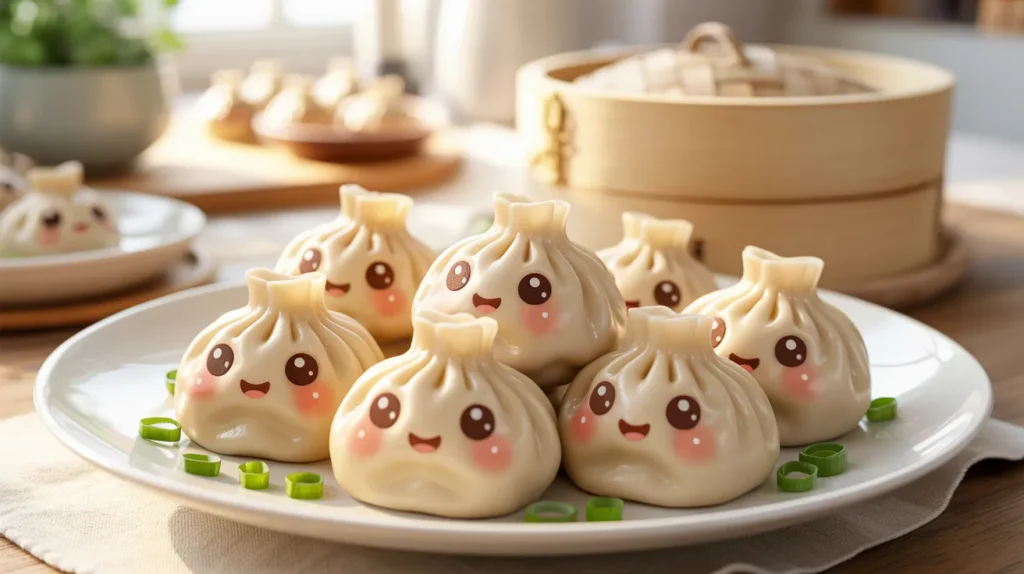
🥢 Dim Sum Puns That Add Up to Fun
The Culture of Small Plates, Big Laughs
Dim sum represents more than just a meal—it’s a social experience, a Sunday tradition, and an art form all rolled into one. Originating from the Cantonese tradition of “yum cha” (drinking tea), dim sum translates to “touch the heart,” which perfectly captures how these small dishes make us feel. Moreover, the dim sum experience involves carts rolling by, bamboo steamers stacking high, and the delightful challenge of trying to pace yourself when everything looks irresistible.
The variety is staggering: siu mai, har gow, char siu bao, turnip cakes, and countless other treasures, each with its own unique flavor profile and preparation method. Therefore, dim sum provides endless opportunities for wordplay, especially when you consider the communal nature of the dining experience and the inevitable competition for the last dumpling on the table.
Read More: 115+ Softball Puns & Jokes: You’re Gonna Love These!
Cart-loads of Comedy
- “Why did the dim sum cart stop moving? It ran out of steam!” Mechanical difficulties in the dining room.
- “What do you call dim sum that’s always available? Dim-some-all-the-time!” 24/7 dumpling dreams.
- “I asked for the check at dim sum. The waiter said, ‘You mean the damage report?'” Financial reality after ordering too much.
- “Why are dim sum dumplings terrible at poker? Everyone can see through their bamboo steamers!” Transparency issues at the table.
- “What’s a dim sum dumpling’s life motto? ‘Steam big or go home!'” Aspirational cooking philosophy.
- “The siu mai went to therapy because it felt open and exposed.” Psychological impacts of being top-less.
- “Why did the har gow feel superior? It was clearly more translucent about its feelings!” Emotional honesty through shrimp visibility.
- “What do you call a dim sum restaurant that delivers? Dim-some-to-you!” Innovation in traditional dining.
- “I tried to count calories at dim sum. I lost count around steamer basket three!” Mathematical failures in the face of deliciousness.
- “Why don’t dim sum dumplings ever argue? They’re all about that bamboo harmony!” Peaceful coexistence in steamers.
- “What did the char siu bao say to the custard bun? ‘We may have different fillings, but we’re all dim sum family!'” Unity in diversity.
- “Why are dim sum waiters so respected? They know how to handle a lot of steamy situations!” Professional grace under pressure.
🥟 Pierogi and Eastern European Dumpling Jokes
When Dumplings Go Eastern
While Asian dumplings dominate the global conversation, Eastern European dumplings deserve their moment in the comedic spotlight. Pierogi, the Polish pride and joy, have been warming hearts and bellies since the 13th century. Additionally, these crescent-shaped pockets of happiness can be filled with everything from potatoes and cheese to fruits and even dessert fillings, making them incredibly versatile.
Neighboring countries have their own versions too: Ukrainian varenyky, Russian pelmeni, and Lithuanian koldūnai all share similar DNA while maintaining distinct identities. These dumplings are often boiled and then pan-fried with butter and onions, creating a comforting dish that reminds people of grandma’s kitchen. Consequently, the humor surrounding these Eastern European favorites often revolves around their hearty nature, cultural traditions, and the fierce pride people take in their family recipes.
Old World Wit
- “Why did the pierogi go to the gym? To work on its filling!” Fitness goals for dumplings.
- “What do you call a pierogi that tells the future? A crystal ball of dough!” Mystical Eastern European cuisine.
- “I asked my Polish grandmother for her pierogi recipe. She said, ‘A little of this, a little of that, and lots of love.’ Thanks, Babcia, very measurable!” Intergenerational recipe frustration.
- “Why don’t pierogi ever get bored? They’re always stuffed with activities!” Busy schedule through filling.
- “What’s a pierogi’s favorite dance? The polka, naturally!” Cultural consistency in movement.
- “The pelmeni joined a support group because it felt boiled down to its basic elements.” Existential crisis through cooking method.
- “Why did the varenyky win the talent show? It had the most filling performance!” Entertainment value through substance.
- “What do you call a pierogi that’s always complaining? A sour cream puff!” Negative attitude with traditional toppings.
- “I tried to make pierogi like my grandmother. She called them ‘a good attempt.’ That’s grandma-speak for ‘stick to your day job.'” Gentle criticism wrapped in love.
- “Why are pierogi so good at keeping secrets? They’re sealed tight!” Security through proper crimping.
- “What did the pierogi say to the sour cream? ‘You complete me, dairy much!'” Perfect partnership acknowledgment.
- “Why don’t Eastern European dumplings ever travel light? They’re always heavily packed!” Generous filling philosophy.
Related: 125+ Elf Puns & Jokes: You’ll Be Shelf-ish Not to Laugh!
🍽️ Restaurant and Cooking Dumpling Puns
Behind the Scenes of Dumpling Creation
Making dumplings is an art form that requires patience, practice, and a surprising amount of upper arm strength. Whether you’re rolling out dough by hand, perfecting your pleating technique, or coordinating a dumpling-making party with friends, the process itself provides endless entertainment. Interestingly, traditional Chinese families often gather together to make dumplings for special occasions, turning the labor-intensive task into a bonding experience.
The kitchen becomes a production line of flour-dusted hands, bowls of filling, and increasingly creative (or increasingly disastrous) folding attempts. Furthermore, professional dumpling chefs can produce hundreds of perfectly uniform dumplings per hour, their hands moving with the precision of well-oiled machines. These kitchen experiences—both professional and amateur—create perfect fodder for culinary comedy that anyone who’s attempted homemade dumplings can appreciate.
Kitchen Chronicles
- “Why did the chef quit the dumpling restaurant? Too much pressure to fold under!” Occupational stress in the kitchen.
- “What do you call a dumpling that’s always late to the plate? Fashionably steamed!” Timing issues with style.
- “I tried to impress my date by making homemade dumplings. They looked like abstract art. Modern abstract art. Very modern. Very abstract.” Culinary ambition meets reality.
- “Why did the dumpling chef open a yoga studio? They were already experts at flexibility and folding!” Career transition utilizing transferable skills.
- “What’s a dumpling restaurant’s biggest fear? A leak in the steamer basket!” Operational nightmares.
- “The cooking show host said, ‘Now fold your dumpling.’ I folded. I gave up and ordered takeout instead.” Knowing when to quit.
- “Why don’t dumpling chefs ever get stressed? They know how to roll with the dough!” Zen mastery through repetition.
- “What did the head chef say to the new dumpling maker? ‘You’ll need to get into the fold!'” Workplace orientation.
- “I watched seventeen YouTube tutorials on dumpling folding. Mine still look like they survived a natural disaster.” Online education limitations.
- “Why did the dumpling restaurant win awards? They really knew how to wrap up a meal!” Excellence in execution.
- “What’s a dumpling chef’s favorite tool? Their trusty roller—it really helps things come around!” Essential equipment appreciation.
- “The restaurant critic said my dumplings were ‘rustic.’ That’s food critic speak for ‘what happened here?'” Euphemistic reviews decoded.
🎉 Dumpling Party and Social Gathering Jokes
When Dumplings Bring People Together
Few foods have the social power of dumplings. They’re perfect party food: bite-sized, shareable, and universally loved across cultures and age groups. Moreover, hosting a dumpling-making party has become increasingly popular, transforming meal prep into entertainment where everyone participates in the creation process, regardless of skill level.
These gatherings often reveal people’s true personalities: the perfectionist who measures every fold, the creative soul whose dumplings look like avant-garde sculptures, the speed demon who sacrifices quality for quantity, and the person who gives up entirely and becomes the official taste-tester. Additionally, dumpling parties create an atmosphere of friendly competition mixed with cooperation, as people compare their creations while simultaneously helping each other avoid complete disasters. Therefore, these social situations provide rich material for humor that celebrates both the joy and chaos of communal cooking.
Social Dumpling Dynamics
- “What do you call a dumpling party that goes wrong? A wrapper catastrophe!” When gatherings spiral out of control.
- “Why are dumpling parties so popular? Because everyone gets to join the fold!” Inclusive entertainment.
- “I hosted a dumpling-making party. Three hours later, we had twelve edible dumplings and forty-seven ‘learning experiences.'” Educational outcomes vary.
- “What’s the best icebreaker at parties? Dumpling folding competitions—everyone bonds over mutual failure!” Shared struggle creates friendship.
- “Why did the introvert love dumpling parties? They could hide behind their work!” Social solutions for shy people.
- “What do you call someone who eats all the dumplings before others arrive? A pre-party favor!” Timing and consumption issues.
- “The party invitation said ‘casual dumpling making.’ I didn’t realize that meant competitive Olympic-level folding!” Expectation versus reality.
- “Why are dumpling parties therapeutic? All that folding works out your frustrations!” Mental health through culinary activity.
- “What’s the unspoken rule at dumpling parties? The ugly ones taste just as good, so eat those first!” Democratic consumption philosophy.
- “Why did the dumpling party go until 2 AM? Because nobody wanted to stop until they got one perfect fold!” Perfectionism delays bedtime.
- “What do you call a dumpling party with only three people? An intimate fold-ing!” Romance through cooking.
- “The best part of dumpling parties? Realizing everyone’s ‘homemade’ dumplings look equally ridiculous!” Equality through imperfection.
Read More: 110+ Milan Jokes & Puns: You Can’t Miss This Fashion!
💕 Romantic Dumpling Puns for Food Lovers
Love Languages Spoken in Dough
Food has always been connected to romance, and dumplings offer particularly rich opportunities for expressing affection. After all, making dumplings for someone is an act of love—it requires time, effort, and the willingness to get flour absolutely everywhere. Furthermore, sharing dumplings on a date creates intimate moments: fighting over the last one, feeding each other across the table, or laughing together when chopsticks fail at crucial moments.
In Chinese culture, making dumplings together symbolizes unity and brings good fortune to relationships. The circular shape represents wholeness and family togetherness. Additionally, some say that couples who fold dumplings together stay together—though that might just be because they’re too exhausted from all that pleating to argue. Consequently, romantic dumpling puns combine culinary passion with matters of the heart, creating wordplay that’s both sweet and savory.
Puns for Your Special Someone
- “You’re the filling to my dumpling—we’re just meant to be wrapped together!” Perfect partnership destiny.
- “I love you from my head tomatoes to my dumpling toes!” Complete devotion with vegetable references.
- “What did one dumpling say to the other on Valentine’s Day? ‘We’re so soup-er together!'” Celebrating coupled excellence.
- “You steam up my life like a perfectly cooked dumpling!” Romantic temperature elevation.
- “I’m not trying to butter you up, but you’re the soy to my sauce!” Condiment-based compliments.
- “What do you call two dumplings in love? A perfect pairing!” Relationship goals in food form.
- “Are you a dumpling? Because I can’t resist taking a bite out of life with you!” Flirtatious food metaphors.
- “You’ve stolen my heart faster than I can steal dumplings from your plate!” Love and larceny combined.
- “What’s a dumpling’s love language? Quality thyme together!” Herb-based affection expression.
- “I’m falling for you harder than a dumpling drops into boiling water!” Passionate descent metaphors.
- “You make my heart race faster than chopsticks chasing the last gyoza!” Cardiovascular excitement through pursuit.
- “What did the dumpling write in its love letter? ‘I’m totally wrapped up in you!'” Written declarations of devotion.
🌍 International Dumpling Jokes from Around the World
A Global Tour of Doughy Delights
Dumplings prove that humanity shares more than we think—virtually every culture has developed its own version of “delicious things wrapped in dough.” From Nepalese momos to Turkish manti, from South American empanadas to African samosas, the dumpling concept spans continents and millennia. Interestingly, this convergent evolution of cuisine shows how similar solutions emerge when people across the world ask the same question: “How can we make leftovers more exciting?”
Each culture adds its unique twist: Tibetan momos often come with spicy achaar, Italian ravioli swim in rich sauces, Korean mandu incorporate kimchi, and Spanish empanadas boast flaky pastry instead of boiled dough. Moreover, the diversity of dumpling types means there’s literally a dumpling for every occasion, dietary preference, and flavor profile. Therefore, international dumpling humor celebrates this beautiful diversity while recognizing our shared love for food in edible packages.
Worldly Wrapper Wit
- “What do you call a dumpling that’s traveled the world? Well-rounded!” Cultural education through consumption.
- “Why did the empanada and gyoza become friends? They realized they weren’t so different after all—just folded differently!” International friendship through food.
- “The Italian ravioli said to the Chinese jiaozi, ‘We’re basically cousins!’ The jiaozi replied, ‘Distant cousins!'” Family tree discussions.
- “What’s a dumpling’s favorite subject in school? World geography—so many places to explore!” Educational interests aligned with existence.
- “Why did the momo apply for a passport? It wanted to expand its horizons!” Wanderlust in dumpling form.
- “What do you call a United Nations meeting of dumplings? A summit with actual flavor!” International relations improvement.
- “The samosa told the pierogi, ‘You’re basically me in colder climate packaging!'” Adaptation discussion.
- “Why are international dumplings so wise? They’ve absorbed knowledge from every culture!” Wisdom through filling variety.
- “What did the manti say to the ravioli? ‘You’re just fancy me!'” Status comparisons.
- “Why don’t dumplings need translators? Food is a universal language!” Communication through deliciousness.
- “What’s a traveling dumpling’s motto? ‘Will fold for food!'” Adaptability as survival strategy.
- “The pot sticker said to the empanada, ‘We should stick together!’ The empanada replied, ‘Let’s seal that deal!'” Alliance formation.
Read More: 99+ Monopoly Jokes & Puns: Boardinghouse of Hilarity
🍲 Soup Dumpling Puns That Hold Water
The Delicate Art of Soup-Filled Humor
Soup dumplings, or xiaolongbao, represent the apex of dumpling engineering—a marvel of culinary physics where hot soup is somehow contained within a delicate wrapper. Originating from Shanghai, these dumplings require precision, patience, and a certain fearlessness when eating them (that soup is HOT). Moreover, the technique for consuming soup dumplings has sparked endless debates: bite and sip, or pop the whole thing in your mouth? Use a spoon, or just chopsticks? Add vinegar, or keep it pure?
The creation process is equally impressive. Chefs must craft a wrapper thin enough to be translucent yet strong enough to contain liquid. The soup itself starts as gelatin that melts during steaming, creating that signature broth explosion. Additionally, eating soup dumplings in public is a test of grace under pressure—one wrong move and you’re wearing your appetizer. Consequently, soup dumpling humor often focuses on these precarious moments, celebrating both the triumph and occasional tragedy of these liquid-filled treasures.
Brothy Belly Laughs
- “Why are soup dumplings terrible at keeping secrets? They burst under the slightest pressure!” Structural integrity issues.
- “What do you call a soup dumpling that’s too full? On the broth of disaster!” Overfilling consequences.
- “I bit into a soup dumpling incorrectly. My shirt is now abstract art.” Fashion through failure.
- “Why did the soup dumpling go to therapy? It couldn’t contain its emotions!” Psychological challenges of being filled with liquid.
- “What’s a soup dumpling’s biggest fear? A hole in its wrapper—a complete breakdown!” Existential vulnerability.
- “The soup dumpling tried meditation but couldn’t find inner peace—just inner soup.” Self-discovery limitations.
- “Why are soup dumplings the most dramatic? One wrong move and it’s a whole production!” Theatrical food tendencies.
- “What did the experienced diner say to the soup dumpling novice? ‘Slow and steady wins the race… and avoids the burns!'” Wisdom through painful experience.
- “Why don’t soup dumplings play sports? Too much risk of breaking under pressure!” Athletic limitations.
- “What’s a soup dumpling’s life philosophy? ‘Hold it together until the very end!'” Stoic wisdom in wrapper form.
- “I mastered eating soup dumplings without spilling. It only took twelve attempts and three shirt changes.” Success through persistence.
- “Why are soup dumplings respected? They’re proof that great things come in carefully sealed packages!” Admiration for engineering excellence.
🥳 Dumpling Festival and Cultural Celebration Puns
When Dumplings Mean More Than Food
Dumplings hold deep cultural significance beyond mere sustenance. In Chinese culture, dumplings are essential for Chinese New Year celebrations, symbolizing wealth because their shape resembles ancient Chinese currency. Furthermore, families gather on New Year’s Eve for dumpling-making marathons, sometimes hiding coins or special ingredients inside for good fortune. The person who finds the lucky dumpling is blessed for the coming year.
Similarly, Polish communities celebrate with pierogi during holidays and festivals, with different fillings marking different occasions—savory for main meals, sweet fruit-filled versions for dessert. Korean families make mandu for Lunar New Year, and Jewish communities prepare kreplach for various holidays. Additionally, these traditions transform dumpling-making from a simple cooking task into a cultural ritual that connects generations and preserves heritage. Therefore, festival-themed dumpling humor celebrates these deeper meanings while acknowledging the joy these traditions bring to communities worldwide.
Celebration Station
- “Why are dumplings essential at Chinese New Year? Because prosperity should always be wrapped in deliciousness!” Cultural wisdom and appetite alignment.
- “What do you call a dumpling that brings good luck? Fort-unate food!” Mystical properties acknowledged.
- “The family that folds dumplings together stays together—because nobody wants to do it alone next year!” Tradition through necessity.
- “Why did the dumpling feel honored during festivals? It was finally recognized for its cultural significance—not just its taste!” Respect beyond flavor.
- “What’s a festival dumpling’s New Year’s resolution? To be even more filling than last year!” Ambitious improvement goals.
- “Why do holiday dumplings taste better? They’re seasoned with tradition and a dash of family chaos!” Secret ingredient revealed.
- “What did Grandma say at the dumpling-making festival? ‘If your dumplings don’t look perfect, blame your cousin!'” Intergenerational deflection tactics.
- “Why are festival dumplings lucky? Because surviving your family’s cooking criticism is already a blessing!” Fortune through endurance.
- “What’s the best part of dumpling festivals? Realizing everyone’s been guessing their way through the recipe for generations!” Collective improvisation exposed.
- “Why do communities bond over dumpling festivals? Shared food, shared laughter, shared mess!” Unity through chaos.
- “What did the coin inside the lucky dumpling say? ‘I’m worth more than face value—I represent hope!'” Symbolic currency appreciation.
- “Why are festival dumplings made in massive quantities? Because nobody ever regretted having too many dumplings!” Abundance philosophy.
😋 Conclusion: Wrapping Up This Feast of Fun!
Bringing It All Together
Well, there you have it—over 135 dumpling puns and jokes that hopefully filled your heart with as much joy as dumplings fill your stomach! Whether you’re a xiaolongbao enthusiast, a pierogi purist, or someone who simply believes that life is too short to discriminate against any dumpling variety, these puns celebrate the universal love for these pockets of happiness.
Dumplings teach us valuable lessons: patience (in the folding), humility (when they fall apart), persistence (trying again after failure), and the importance of community (because making dumplings alone is just sad). Moreover, they remind us that despite our cultural differences, we all share the same basic human desire—to wrap delicious things in dough and eat them with joy.
Share the Laughs
These puns are perfect for breaking the ice at your next dumpling party, lightening the mood when your homemade attempt goes hilariously wrong, or simply adding some flavor to your group chat. Share them with your foodie friends, post your favorite on social media, or save them for when someone needs a smile served with a side of humor.
Your Turn!
So which dumpling pun made you laugh the hardest? Which one made you groan into your soup? Do you have your own dumpling jokes to share? Drop a comment below with your favorites!
And if these puns brought joy to your day, share this article with fellow dumpling lovers—after all, happiness, like dumplings, is best when shared. Now go forth, eat dumplings, make terrible jokes, and remember: in life and in cooking, sometimes the most beautiful things come from a little imperfection. Stay steamy, friends! 🥟💕
Read More: 101+ Ankle Jokes & Puns: You’ll Laugh Your Foot Off!
